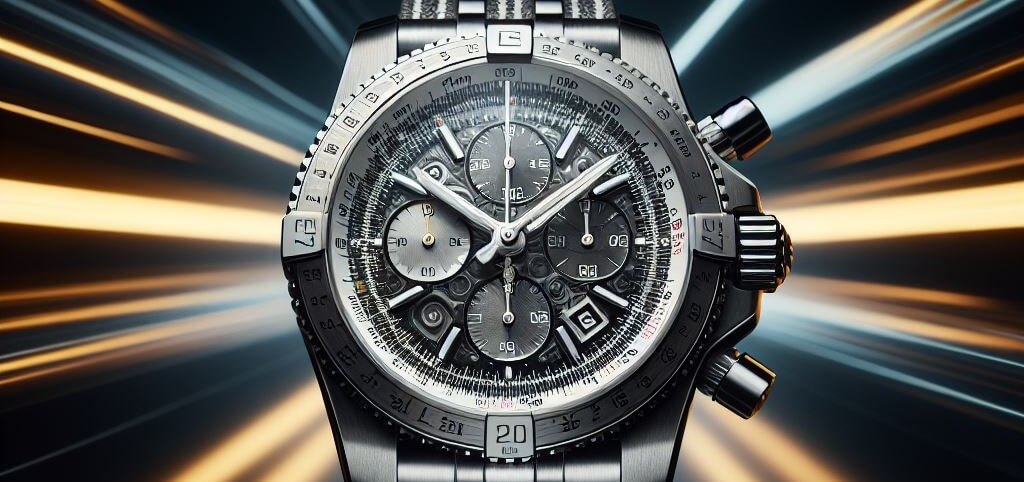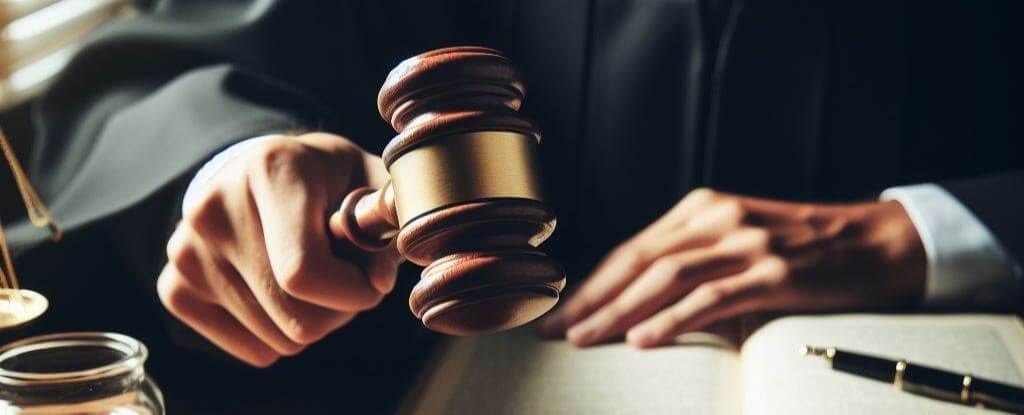U.S. Appeals Court Notes Importance of Timely Legal Action in Recent Trademark Infringement Ruling
Takeaway: The Fifth Circuit upheld a U.S. District Court decision finding BeckerTime guilty of trademark infringement against Rolex, but the court refused to award profits to Rolex due to a laches defense, underscoring the importance of timely legal action in trademark disputes and adherence to court rules for claiming attorneys’ fees.
The U.S. Court of Appeals for the Fifth Circuit affirmed the U.S. District Court’s decision that BeckerTime infringed Rolex’s trademarks, but the court declined to disgorge BeckerTime of its profits due to a laches defense. The District Court’s ruling, stemming from a case dating back to September 2020, found BeckerTime guilty of trademark infringement and counterfeiting but refused to award profits to Rolex, citing undue prejudice caused by Rolex’s delayed legal action, despite its awareness of BeckerTime’s activities since 2010. The Fifth Circuit upheld this decision, emphasizing Rolex’s failure to justify the delay of over 10 years and rejecting other defenses raised by BeckerTime, including waiver, fair use, and the first sale doctrine.
Rolex sought modifications to the injunction and requested treble damages and attorneys’ fees on appeal, but the Fifth Circuit upheld the lower court’s decision, stating that the correct likelihood of confusion test was applied. However, the court noted Rolex’s failure to follow proper procedures for claiming attorneys’ fees within the required timeframe, thus waiving its right to recover them. While the case underscores the importance of timely action in trademark disputes, it also highlights the necessity of adhering to court rules for claiming attorneys’ fees and consulting IP attorneys to ensure compliance with original manufacturers’ IP rights when dealing with luxury products.
Second Circuit Upholds Breitling’s Use of ‘Red Gold’ in Trademark Dispute
Takeaway: The Second Circuit upheld a ruling in favor of Breitling USA Inc. in a trademark dispute with Solid 21 Inc., determining that Breitling’s use of the term “red gold” was descriptive, emphasizing historical industry context and consistent usage by Breitling.

In a recent decision, a split Second Circuit panel upheld a Connecticut federal judge’s ruling in favor of Breitling USA Inc. in a trademark dispute with Solid 21 Inc. The case centered on Breitling’s use of the term “red gold” to describe the color of its products. The court determined that Breitling used the phrase in a descriptive manner and in good faith, rather than as a trademark.
The panel, led by U.S. Circuit Judge Richard C. Wesley, emphasized the historical context of the term “red gold” in the jewelry industry, dating back to the mid-1800s. It pointed out that Breitling consistently used the term to describe the materials used in its watches, particularly gold with red or pink hues, and not as a source identifier.
The court rejected Solid 21’s arguments, including its claim that “red gold” was not a generic term and its assertion that Breitling used the term to target specific consumer demographics. The majority opinion, authored by Judge Wesley, emphasized that Breitling’s use of “red gold” was purely descriptive and accompanied by other materials in its advertising, such as stainless steel and titanium.
“Red Gold” as an asserted trademark is very familiar to our firm, as Cislo & Thomas’ Managing Partner Daniel M. Cislo, Esq. has been a trademark expert in two different cases regarding these accusations:
– Solid 21, Inc. v. Richemont North America, Inc. et al.; Case No. 1:19-cv-01262-LGS (Trademark Litigation – Represented Defendant), and
– Solid 21, Inc. v. Ulysse Nardin, Inc.; Case No. 19-80474-Civ-Middlebrooks/Brannon (Trademark Litigation – Represented Defendant).
Top Appeals Court Affirms Broad Copyright Protection in Landmark Case Over Mundane Material
Takeaway: The Sixth Circuit’s top appeals court judge upheld a ruling affirming that copyright law protects even mundane works, emphasizing the “minimal degree of creativity” standard set by the U.S. Supreme Court in 1991.

The Sixth Circuit’s top appeals court Judge Jeffrey Sutton issued a significant opinion affirming the protection of “all manner of works” under copyright law, even mundane material. The case involved Allegiance Administrators LLC copying terms and conditions from a car-dealer loyalty program from Premier Dealer Services, Inc., resulting in over $1 million in damages and fees. U.S. District Judge Sargus ruled in favor of Premier, emphasizing the minimal creativity standard set by the Supreme Court in 1991.
In the recent opinion, U.S. Circuit Judge Sutton expanded this standard, stating that copyright protection extends to even seemingly generic works. He refuted Allegiance’s argument, highlighting the creative choices made in crafting the terms and conditions, securing a favorable ruling for Premier Dealer Services Inc.
Washington State Supreme Court Approves Alternative Paths to Legal Licensing
Takeaway: The Washington State Supreme Court has approved alternative pathways for law school students and graduates to become lawyers without taking the bar exam, making it the second state to approve such alternatives.
The Washington State Supreme Court has endorsed a plan allowing law school students and graduates to become lawyers without taking the bar exam. The plan, proposed by the Washington State Bar Licensure Task Force, offers alternative pathways to licensure aimed at increasing accessibility for historically marginalized groups. The approved options include working as a law firm intern during law school, participating in an apprenticeship under an attorney, or enrolling in a non-law school course of study with a clerkship program.
The court’s decision makes Washington the second state, after Oregon, to approve such alternative routes to legal licensing. Law school students can graduate practice-ready by completing specified coursework, a legal internship, and submitting a portfolio of their work. Graduates have the option to skip the bar exam by undergoing a six-month apprenticeship and completing standardized courses. Several other states, including California, are also exploring similar alternatives to the bar exam.
U.S. Patent and Copyright Offices Advise Caution Amid Rapid Growth of Nonfungible Tokens (NFTs) in IP Landscape
Takeaway: The U.S. Patent and Trademark Office and the U.S. Copyright Office advised against immediate changes to IP laws in response to the rapid evolution of nonfungible tokens (NFTs), highlighting potential benefits like greater IP control alongside challenges such as piracy and infringement.

The U.S. Patent and Trademark Office and the U.S. Copyright Office have submitted a report to Congress regarding nonfungible tokens (NFTs), discussing the potential benefits and concerns surrounding NFTs in relation to intellectual property law. They received input suggesting that NFTs can offer greater IP control and enforcement possibilities but also raise issues such as piracy and infringement. Despite these challenges, the offices recommended against immediate changes to IP laws or policies, stating that NFT technology is evolving rapidly and new laws specifically for NFTs would likely be premature.
The report covers various IP aspects related to NFTs, including copyright, trademark, and patent law, and emphasizes the need for public education on NFTs and legal implications. While NFTs present opportunities for creators and brand building, they also pose enforcement challenges and uncertainties, leading stakeholders to believe that existing laws suffice for now as NFT-related technologies continue to develop.
Pair Charged in Attempted Sale of Tesla’s Battery Technology Trade Secrets
Takeaway: Brooklyn prosecutors charged Klaus Pflugbeil and his Chinese partner with trying to sell Tesla’s battery technology secrets, leading to Pflugbeil’s arrest for sending trade secrets to undercover agents and a possible 10 year prison sentence.

Brooklyn federal prosecutors have charged Klaus Pflugbeil, a Canadian residing in China, and his Chinese business partner with attempting to sell Tesla’s secret battery manufacturing technology. This comes after Pflugbeil’s arrest for sending multiple Tesla trade secrets to undercover agents and meeting with individuals he wrongfully believed were Long Island-based businesspeople. The charges include conspiring to send a “battery assembly trade secret” to a person in New York, and prosecutors are seeking Pflugbeil’s detention, citing a risk of flight.
Pflugbeil and his co-defendant, Yilong Shao, who remains at large, set up their company in Canada and China to manufacture and sell battery technology using stolen confidential information from their former employer, Hibar Systems, which was acquired by Tesla in 2019. They opened their business in 2020, operating in multiple countries and producing products similar to those made by Hibar and Tesla using the proprietary technology. If convicted, Pflugbeil faces up to 10 years in prison.
Cislo & Thomas LLP Spotlight
On our way to INTA 2024 in Atlanta!
Cislo & Thomas LLP will be exhibiting at the 146th Annual INTA Conference in Atlanta, Georgia this year from May 18, 2024 through May 22, 2024 and holding meetings at our Booth No. 454 at the INTA Conference Center. If you plan to attend, please come by and see us!

Happy Easter From your Cislo & Thomas LLP Family
Happy Easter! We hope that you are greatly blessed this year, as we all renew what is good and leave behind what is not.




